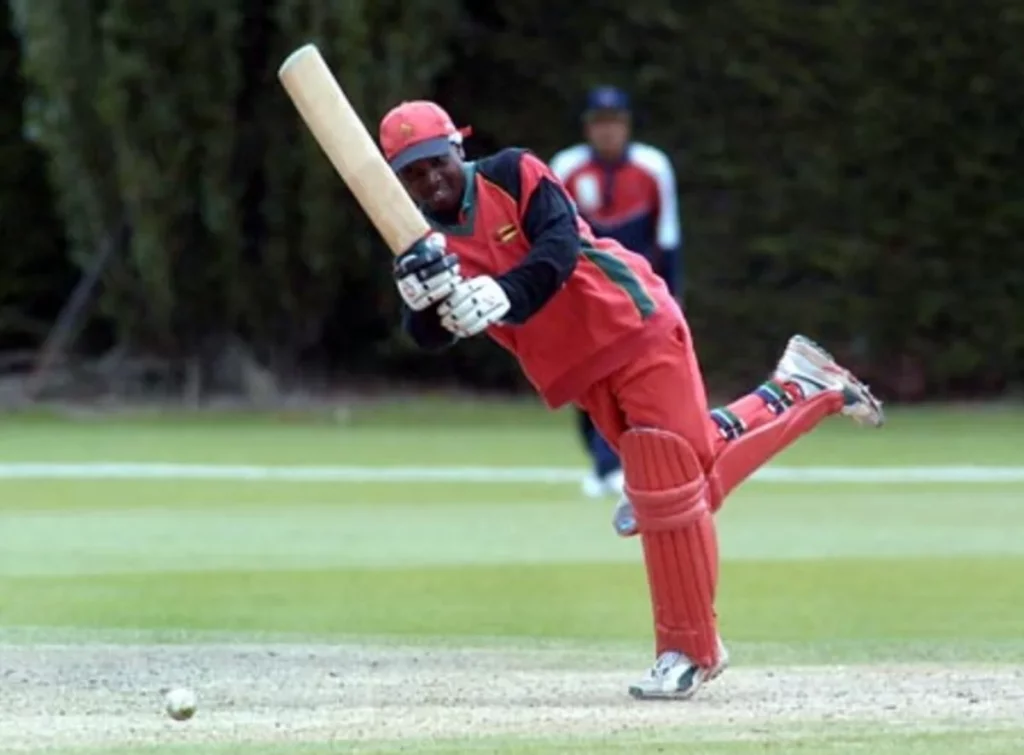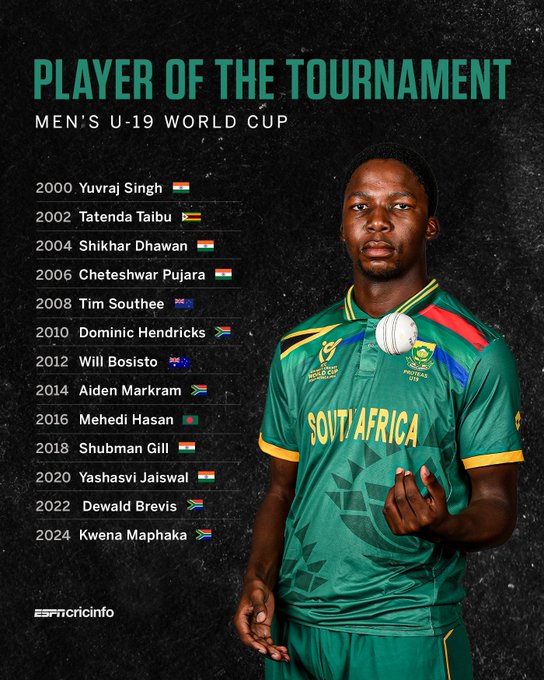BY SPORTSCAST WRITER
HARARE – Take a look at these names: Yuvraj Singh, Shikhar Dhawan, Cheteshwar Pujara, Shubman Gill, Yashasvi Jaiswal.
Of course, they are all Indian cricket players who have made a mark on the game playing for one of the most passionately supported international teams in world sport.
What else do these India superstars have in common? Well, all five are past winners of the Player of the Tournament award at the Under-19 Cricket World Cup since the accolade was first introduced at the 2000 edition of this biennial competition.
There are quite a few other previous winners of this coveted individual award who also stepped up to become distinguished professionals for their countries – such as Aiden Markram of South Africa and New Zealand’s Tim Southee.
One past winner who however never really attained the greatness his talents merited is Tatenda Taibu, Zimbabwe’s first black captain and one time the record youngest Test skipper in the world.
The diminutive Zimbabwean wicketkeeper was the second ever Under-19 World Cup Player of the Tournament, in New Zealand in 2002, after Yuvraj Singh bagged the historic first award two years earlier in Sri Lanka.

Tatenda Taibu bats in the Plate Championship final against Nepal at the 2002 Under-19 World Cup.
Taibu did everything in that tournament to lead Zimbabwe to Plate Championship success: he captained, scored runs, kept wicket, and even took wickets after removing his gloves to bowl.
Kwena Maphaka, the South African pace sensation who has been voted the best player at the recently ended 2024 Under-19 World Cup in his homeland, has become only the second ethnic black cricketer on the planet to achieve that feat, 22 years after the trailblazing Taibu soared to the top of the world.

17-year-old Maphaka – who took 21 wickets including three five-wicket hauls in the tournament – is now being tipped for greatness in the senior Proteas side and has caused a lot of excitement across the cricketing world.
As for Taibu, he is in his early 40s now, and retired. Although on occasion he did showed glimpses of the player he should have become – just one example being his brilliant century against a Dale Steyn-spearheaded Proteas pace attack in 2009 in a losing cause in South Africa – Taibu himself has previously bemoaned his own largely unfulfilled potential.
All because of politics and the boardroom squabbles that would later rock Zimbabwean cricket beginning 2004 when 15 senior national team players were sacked at the height of a bitter row with the board.
The departure of this golden generation of Zimbabwe’s team deprived Taibu of experienced teammates to guide him along, gradually and smoothly, until he realised his fullest potential.
Taibu himself soon had his own run-ins with the authorities, forcing him to quit international cricket and going into self-imposed exile.
When Taibu returned to play for his country around 2009, the bursts of brilliance were still there, but he had already lost what should have been the best era of his international career. We can only then wonder what could have been had cricket in Zimbabwe not gone haywire post-2004.





























